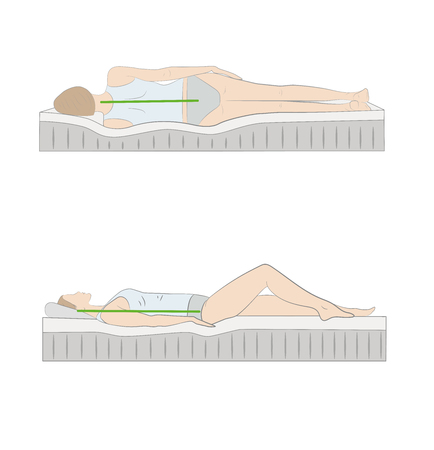1. Understanding Skincare Changes During Pregnancy
If you’re in your 30s and pregnant, you might notice that your skin is acting differently than usual. Hormonal changes during pregnancy can lead to a variety of new skin concerns—even if you’ve always had clear, balanced skin before. These changes are totally normal, but they can sometimes feel overwhelming when you’re already juggling so much. Let’s break down what you might experience and why it happens.
Common Skin Issues During Pregnancy
Your body is working overtime to support your growing baby, and that can show up on your skin in several ways. Here’s a quick look at the most common skin changes:
| Skin Issue | What It Looks Like | Why It Happens |
|---|---|---|
| Breakouts & Acne | Pimples, blackheads, or increased oiliness | Hormone surges boost oil production, clogging pores |
| Pigmentation (Melasma) | Dark patches, often on cheeks or forehead (“pregnancy mask”) | Higher estrogen and progesterone levels increase melanin |
| Sensitivity & Redness | Itchy, irritated, or flushed skin; sometimes rashes | Skin barrier becomes more reactive due to hormonal shifts |
| Dryness & Stretch Marks | Tightness, flakiness, pink or purple streaks on belly/thighs | Rapid stretching and increased blood flow affect skin’s elasticity and moisture retention |
Why Your 30s Are Unique for Pregnancy Skincare
Many women notice that their skin in their 30s doesn’t bounce back quite as quickly as it did in their 20s. Collagen production starts to slow down in this decade, which means you may be more prone to dryness or fine lines. Add pregnancy hormones into the mix, and you’ve got a unique combination of needs to address—like preventing breakouts without over-drying your skin or managing pigmentation while keeping everything gentle and safe for baby.
Key Takeaways for Moms-to-Be in Their 30s:
- Your skin will probably need extra TLC during pregnancy—even if you’ve never struggled with skin issues before.
- The most common concerns are breakouts, pigmentation (especially melasma), sensitivity, and stretch marks.
- A gentle approach with simple routines is best—harsh treatments are usually not recommended during pregnancy.
- Your needs might change throughout each trimester—listen to your body and adjust as needed.
2. Ingredients to Avoid While Pregnant
When you’re pregnant and in your 30s, it’s more important than ever to know what’s in your skincare products. Some ingredients that are commonly found in anti-aging and acne-fighting formulas can actually be risky for you and your baby. Here’s a simple guide to which ingredients you should steer clear of during pregnancy—and why.
Retinoids (Vitamin A derivatives)
Retinoids are powerful ingredients often used to treat wrinkles and acne. However, studies have shown that high doses of vitamin A derivatives, especially prescription-strength ones like tretinoin or isotretinoin, can cause serious birth defects. Even though over-the-counter retinol is milder, experts recommend avoiding all forms of retinoids when you’re pregnant or trying to conceive.
Common Names on Labels:
- Retinol
- Retin-A
- Tretinoin
- Adapalene
- Isotretinoin
- Retinyl palmitate
Certain Acids
Some acids in skincare are considered unsafe during pregnancy because they can be absorbed into the bloodstream or irritate sensitive skin. The main ones to avoid include:
| Ingredient Name | Why It’s Unsafe During Pregnancy |
|---|---|
| Salicylic Acid (BHA) | High doses have been linked to birth defects; avoid especially in oral form or strong peels. |
| Benzoyl Peroxide | May cause skin irritation; limited research on safety, so best to avoid. |
| Azelalic Acid (high concentration) | Generally considered safer in low concentrations, but check with your doctor first. |
| Lactic Acid & Glycolic Acid (AHA) | Mild use is usually safe, but high concentrations may irritate sensitive pregnancy skin. |
Specific Essential Oils
Many people love using essential oils for their natural benefits, but some can trigger contractions or harm your developing baby. Here are some oils best avoided:
- Rosemary oil (may increase blood pressure or trigger contractions)
- Sage oil (linked to miscarriage risk)
- Basil oil (potentially harmful in high amounts)
- Peppermint oil (can affect milk production if breastfeeding later on)
- Jasmine and Clary Sage oil (may stimulate uterine contractions)
Other Ingredients to Watch Out For:
- Hydroquinone: Used for skin lightening but can be absorbed systemically at higher rates.
- Formaldehyde and formaldehyde releasers: Found in some nail polishes and hair treatments; linked to cancer and pregnancy complications.
- Chemical sunscreens containing oxybenzone: May disrupt hormones; choose mineral-based sunscreens instead.
Quick Reference Table: Skincare Ingredients to Avoid During Pregnancy
| Ingredient Type | Avoid Because… |
|---|---|
| Retinoids/Retinol | Linked to birth defects and developmental issues. |
| BHA/Salicylic Acid (high dose) | Possible risks of birth defects with high absorption. |
| Certain Essential Oils (like rosemary, sage) | May trigger contractions or other pregnancy issues. |
| Hydroquinone | Easily absorbed; not enough safety data. |
| Chemical Sunscreens (oxybenzone) | Potenial hormone disruption; opt for zinc oxide or titanium dioxide instead. |
If you’re ever unsure about an ingredient, don’t hesitate to ask your OB-GYN or dermatologist. Your skin changes during pregnancy—what worked before may need a second look now!

3. Pregnancy-Safe Skincare Ingredients
Hydrating Ingredients
During pregnancy, your skin may become more sensitive and prone to dryness. Choosing hydrating ingredients is key for a healthy glow. Here are some gentle, effective options:
| Ingredient | How It Helps | Why Its Safe |
|---|---|---|
| Hyaluronic Acid | Boosts moisture, plumps skin, and reduces tightness | Naturally found in the body, non-irritating and safe for pregnancy |
| Glycerin | Draws water into the skin for lasting hydration | Gentle humectant, unlikely to cause reactions |
| Squalane | Lightweight oil that locks in moisture without clogging pores | Plant-derived, non-comedogenic, safe during pregnancy |
Soothing Ingredients
If your skin feels irritated or sensitive, these soothing ingredients can help calm redness and discomfort:
| Ingredient | How It Helps | Why Its Safe |
|---|---|---|
| Aloe Vera | Cools and soothes irritation; ideal for sensitive skin types | Mild and natural; commonly used in pregnancy-safe products |
| Colloidal Oatmeal | Reduces inflammation and relieves itchiness or dryness | Mild enough for babies, making it safe for expecting moms too |
| Cucumber Extract | Refreshes and calms skin, reduces puffiness | Naturally derived, gentle on sensitive skin during pregnancy |
Protective Ingredients
Your skin may be more susceptible to sun damage and environmental stressors while pregnant. These ingredients offer extra protection:
| Ingredient | How It Helps | Why Its Safe |
|---|---|---|
| Zinc Oxide (in sunscreen) | Provides broad-spectrum sun protection; physical barrier against UV rays | Mineral-based, does not penetrate the skin, safe for pregnancy use |
| Vitamin E (Tocopherol) | Antioxidant that shields skin from free radicals and soothes dryness | Pregnancy-friendly when used topically in moderate amounts |
| Ceramides | Strengthen the skin’s protective barrier and prevent moisture loss | Naturally occurring in the skin; safe and effective for all stages of pregnancy |
A Few Tips When Choosing Products:
- Avoid added fragrances: These can sometimes trigger sensitivity.
- Select products labeled “fragrance-free” or “for sensitive skin”: They’re usually gentler.
- Patching first is smart: Try new products on a small area before applying all over.
Your Hydration & Protection Routine Matters!
The right ingredients can keep your skin comfortable and glowing throughout your pregnancy. Look for these gentle hydrators, soothers, and protectors to support your changing needs as you move through your thirties and this exciting chapter of life.
4. Building a Pregnancy-Safe Skincare Routine in Your 30s
Step 1: Know Your Skin Concerns in Your 30s
In your 30s, you might notice changes like dullness, fine lines, increased dryness, or occasional breakouts. Pregnancy can also bring on new issues like sensitivity, hyperpigmentation (melasma), and breakouts due to hormonal shifts. It’s important to pick products that target both your usual concerns and pregnancy-specific needs.
Step 2: Safe Ingredients vs. Ingredients to Avoid
| Safe for Pregnancy | Avoid During Pregnancy |
|---|---|
| Hyaluronic Acid (for hydration) | Retinoids (retinol, tretinoin) |
| Vitamin C (brightening) | Salicylic Acid (high concentrations) |
| Niacinamide (for redness and texture) | Benzoyl Peroxide (use only with doctor approval) |
| Ceramides & Peptides (barrier support) | Hydroquinone |
| Zinc Oxide & Titanium Dioxide (physical sunscreens) | Essential Oils (certain types; check with OB/GYN) |
Step 3: Build Your Routine Step-by-Step
Morning Routine
- Gentle Cleanser: Choose a mild, fragrance-free cleanser.
- Toner: Use alcohol-free formulas with soothing ingredients like chamomile or aloe.
- Treatment Serum: Opt for vitamin C or niacinamide for brightening and even skin tone.
- Moisturizer: Go for lightweight creams with ceramides or hyaluronic acid.
- Sunscreen: Always finish with a broad-spectrum SPF 30+ using physical blockers like zinc oxide or titanium dioxide.
Night Routine
- Gentle Cleanser: Same as morning.
- Toner: Alcohol-free and calming.
- Treatment Serum: Peptide serums help with repair and hydration without harsh actives.
- Moisturizer: Use a richer formula if needed, especially if your skin feels dry.
Step 4: Adjust for Common Concerns in Your 30s During Pregnancy
| Concern | Prego-Safe Solution | Extra Tips |
|---|---|---|
| Dullness & Uneven Tone | Vitamin C serum, gentle exfoliation (enzyme-based masks) | Avoid harsh scrubs or acids; use sunscreen daily to prevent melasma |
| Blemishes & Breakouts | Sulfur spot treatments, azelaic acid, witch hazel (patch test first) | Avoid high-dose salicylic acid and benzoyl peroxide unless cleared by your doctor |
| Sensitivity & Redness | Ceramide creams, fragrance-free products, oatmeal masks | Simplify your routine if irritation occurs; skip unnecessary steps |
| Dull/Dry Skin | Hyaluronic acid serum, thicker moisturizers at night, humidifier in bedroom | Avoid foaming cleansers that strip natural oils from skin |
| Fine Lines & Early Aging Signs | Peptides, niacinamide, hydrating eye cream safe for pregnancy | No retinoids; focus on moisture and sun protection instead of aggressive anti-aging ingredients |
Step 5: When in Doubt, Ask Your Healthcare Provider or Dermatologist
If you’re unsure about any product or ingredient while pregnant, always double-check with your OB/GYN or dermatologist. Every pregnancy is unique, so what works for one person may not be right for another. Stick to simple routines and listen to your skin’s needs during this special time.
5. Choosing Clean and Trusted Brands
Tips for Vetting Skincare Brands in the US
Navigating the world of skincare during pregnancy, especially in your 30s, can be tricky. With so many brands out there, it’s important to make sure you’re choosing products that are both safe and effective for you and your baby. Here’s how you can spot trusted, pregnancy-safe brands in the US:
- Research Brand Reputation: Look for brands with a solid track record and positive reviews from moms-to-be. Many trusted US brands clearly state if their products are pregnancy-safe.
- Check for Certifications: Labels like “dermatologist-tested,” “OB/GYN-approved,” or third-party certifications (such as EWG Verified) can indicate higher safety standards.
- Transparency Matters: Trusted brands will provide full ingredient lists and openly share their sourcing and manufacturing practices.
How to Read Ingredient Labels Like a Pro
Understanding what’s in your skincare is key to avoiding harmful ingredients. Here’s a quick guide to help you decode labels:
| Label Term | What It Means | Pregnancy Safety |
|---|---|---|
| Fragrance-Free | No synthetic fragrance added | Better choice (less irritation) |
| Paraben-Free | No parabens (preservatives) | Safer for pregnancy |
| Sulfate-Free | No harsh cleansing agents | Gentler on sensitive skin |
| BPA-Free Packaging | No Bisphenol A in packaging | Reduces chemical exposure risk |
| Cruelty-Free/Vegan | No animal testing/ingredients | Ethical, but check for other safety concerns too |
| Retinol/Salicylic Acid Free | No retinoids or high-level salicylic acid | Avoid during pregnancy |
Opting for Pregnancy-Safe Product Lines
Many US skincare brands offer lines specifically formulated for expecting moms. Here are some tips to keep in mind:
- Select Products Marked “Pregnancy-Safe”: Some lines are specially designed with gentle, non-toxic ingredients.
- Avoid Common Harmful Ingredients: Stay away from retinoids, high-dose salicylic acid, hydroquinone, formaldehyde, and phthalates.
- Consult Your OB-GYN: If you’re unsure about a product or ingredient, ask your healthcare provider before use.
- Look for Simple Formulas: Fewer ingredients often means less risk of irritation or unwanted side effects.
6. When to Consult a Dermatologist or OB-GYN
During your 30s, pregnancy can bring all sorts of changes to your skin—some totally normal, and some that may be new or unexpected. While there’s a lot you can safely manage on your own, certain situations call for the advice of a professional like a dermatologist or OB-GYN. Here’s how to know when it’s time to reach out for expert help.
Signs You Should See a Dermatologist
- Persistent Acne: If breakouts are getting worse or not responding to pregnancy-safe treatments.
- Unusual Rashes or Spots: Any sudden changes in moles, new rashes, or unexplained spots should be checked.
- Severe Itching: Especially if it doesn’t go away with over-the-counter remedies. Some pregnancy-related skin conditions need medical attention.
- Allergic Reactions: Redness, swelling, or burning after trying a new product.
When to Talk to Your OB-GYN
- Before Starting Any New Skincare Products: Especially if the ingredients are unfamiliar or if you’re considering something labeled “clinical strength.”
- If You Notice Stretch Marks That Change Suddenly: Rapid color changes, pain, or swelling should be discussed.
- If You Have Concerns About Hormonal Skin Changes: Like melasma (dark patches) that seem to spread quickly.
- If You’re Unsure About Product Safety: When in doubt about a label or an ingredient, your OB-GYN can help review it for pregnancy safety.
Common Skin Concerns During Pregnancy: Who to Call?
| Skin Concern | See Dermatologist | See OB-GYN |
|---|---|---|
| Mild acne flare-ups | No (unless persistent) | No |
| New or changing moles/spots | Yes | No |
| Persistent severe itching | Yes | Yes (if whole body) |
| Tried new product, got rash/burning | Yes | No (unless severe reaction) |
| Questions about ingredient safety | No (unless related to condition) | Yes |
| Sensitivity/allergy after new lotion/cream | Yes (if doesn’t improve) | No (unless swelling/difficulty breathing) |
| Dramatic hormonal pigment changes (melasma) | No (unless concern about appearance/treatment) | Yes |
Quick Tips Before Trying Something New:
- Patches First: Always do a patch test with any new skincare product—even “natural” ones.
- Check Labels: Look for products marked as “pregnancy-safe” and avoid ingredients known to be risky during pregnancy.
- If in Doubt, Ask: Don’t hesitate to call your doctor’s office for clarification before adding anything new to your routine.
Your skin is unique and may react differently during pregnancy. Don’t worry about reaching out for help—it’s always better to be safe and take care of yourself and your baby!

